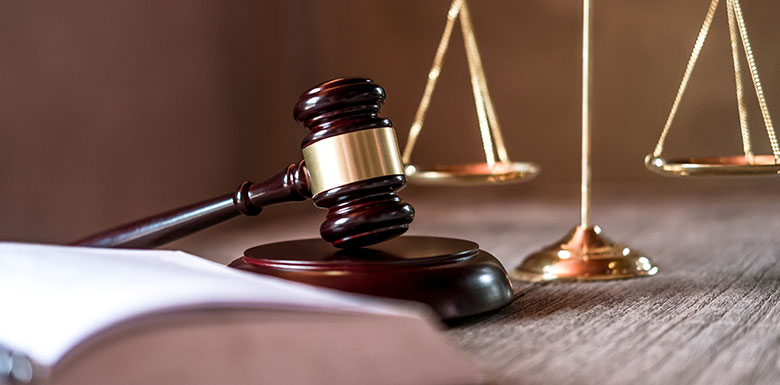Will My Medical Marijuana Card Save Me from a DUI?
13 Sep 2023, by in Criminal Defense, DUI
Written by Timothy Czekaj
Medical marijuana has been legal in Pennsylvania since 2016. You may think a medical card protects you from criminal charges because you can legally consume THC. However, many patients don’t know they can run into legal trouble if they get behind the wheel after using cannabis.
Even those who have a medical card can be charged with a DUI if they drive while impaired by drugs. Here’s what you need to know about marijuana and DUI laws in Pennsylvania.
Marijuana and DUI Laws in Pennsylvania
Although marijuana is legal for medical use in Pennsylvania and has been decriminalized in small amounts, the state has a zero-tolerance law prohibiting driving with virtually any detectable amount of THC in the body.
State code outlines these laws, which differ slightly for alcohol impairment versus drugged driving. You may commonly think of a DUI resulting from a blood-alcohol content (BAC) over the legal limit (.08% in PA). You may also be surprised to learn that you don’t have to feel impaired to be charged with a marijuana DUI, even if you have a medical card. According to § 3802:
“An individual may not drive, operate or be in actual physical control of the movement of a vehicle under any of the following circumstances:
1. There is in the individual’s blood any amount of a:
- Schedule I controlled substance, as defined in the act of April 14, 1972 (P.L.233, No.64), known as The Controlled Substance, Drug, Device, and Cosmetic Act.
- Schedule II or Schedule III controlled substance, as defined in The Controlled Substance, Drug, Device, and Cosmetic Act, which has not been medically prescribed for the individual.”
Do the Same DUI Laws Apply if You Have a Medical Card?
Yes, there are no exceptions for medical marijuana patients. Marijuana is currently a Schedule I controlled substance. This means the DUI statute applies to anyone driving with any amount of THC in their system. Any detectable amount of THC is still deemed impaired under the DUI laws, regardless of whether the THC is legally consumed. The “detectable amount” of THC is so small, that essentially any use of marijuana will result in the required nanograms per milliliter in your blood to automatically deem you “impaired”.
How Does THC Impact Driving Ability?
A 2018 CDC report showed almost 12 million U.S. residents reported driving under the influence of marijuana, and 2.3 million reported driving under the influence of other illicit drugs. Following a similar trendline, NHSTA data reveals that drug-impaired driving has become a significant highway safety issue in recent years. Studies have shown that marijuana can slow your reaction time, impair distance judgment, and decrease coordination.
Being alert and attentive is essential when driving. Since there is scientific evidence that marijuana use can make driving unsafe, operating a vehicle while under the influence is illegal — even if you have a medical card.
The National Conference of State Legislatures has pointed out the challenges in testing for marijuana-impaired driving since there is no agreed-upon standard for marijuana impairment. THC can stay in a person’s system for weeks and appear in a roadside test even if there is little other evidence of impairment.
In addition, many drivers charged with a DUI are primarily cited for having a BAC over the legal limit and may not be tested for other substances like THC. This makes it even tougher to measure and address marijuana-impaired driving.
Marijuana DUI Penalties
Since marijuana and alcohol DUIs fall under the same statute, the same penalties apply for driving after ingesting THC as they would after consuming alcohol.
If convicted of a first-time marijuana DUI, you face a minimum jail sentence of 72 hours and up to six months of incarceration, losing your driver’s license for one year, and a fine of up to $5,000. You will also be ordered to complete educational and drug treatment programs, as well as possible community service.
Subsequent offenses bring more severe penalties. A second marijuana DUI can bring up to five years in prison, an 18-month license suspension, and a maximum fine of $10,000.
Can You Refuse a Chemical Test?
If you’re arrested for a marijuana DUI, you must undergo chemical testing to reveal the amount of THC in your system. You may think refusing the test is a good idea to avoid incriminating yourself, but doing so is not advisable.
Refusal will result in a license suspension of at least one year and up to 18 months. Refusing may keep the prosecutor from pursuing a per se marijuana DUI. They can still charge you with the violation based on proof of impairment.
Possible Defenses after a Marijuana DUI
Although having a medical card can’t get you out of a DUI charge, your attorney might use several defense strategies to get the charges against you reduced or dismissed. Such defenses might include:
- Challenging the validity of the traffic stop
- Challenging the legality of the search and seizure of evidence
- Contesting the field sobriety tests or chemical testing results
Charged with a DUI after Using Marijuana? Call Czekaj Law LLC Today
Even longtime medical marijuana patients in Pennsylvania might make a mistake and face a DUI. If you were charged with a DUI after using marijuana, call Czekaj Law LLC immediately. Attorney Czekaj has defended numerous clients with medical cards who faced charges.
Our team will investigate what happened, review the evidence, and fight hard to achieve a favorable outcome, whether it’s getting your charges reduced or dismissed entirely.
Call 717-275-9770 or fill out our quick contact form to schedule a free initial consultation.